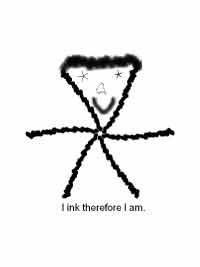Holocaust Films
http://en.wikipedia.org/wiki/List_of_Holocaust_films
My quick count of wikipedia's listings for Holocaust films by decade.
| Decade | Narrative | Docum. | Total | |
| | | | |
| 1940's | 5 | 9 | 14 | |
| 1950's | 6 | 1 | 7 | |
| 1960's | 12 | 8 | 20 | |
| 1970's | 22 | 3 | 25 | |
| 1980's | 31 | 24 | 55 | |
| 1990's | 50 | 66 | 116 | |
| 2000's * | 37 | 46 | 83 | |
| Total | 163 | 157 | 320 | |
| | | | |
| * Only up to 2008 for Narrative and 2006 for Documentary films |
Additional Films
As Seen Through These Eyes

[a Hilary Helstein film ; a Menemsha Films release].
Publication info: [Venice, Calif.] : Menemsha Films, c2009.
Performer: Narrated by Maya Angelou.
The story of a brave group of people who fought Hitler with the only weapons they had: charcoal, pencil stubs, shreds of paper, and memories etched in their minds. These artists took their fate into their own hands to make a compelling statement about the human spirit enduring against unimaginable odds.

Adam Resurrected (אדם בן כלב, Adam Ben Kelev) is an American-German-Israeli film, directed by Paul Schrader and adapted from Yoram Kaniuk's novel of the same name published in Israel in 1968. The book's original name literally means "Man, son of a dog". It was screened at several film festivals, including Telluride, Toronto, Mill Valley, AFI, Haifa Film Festival, Valladolid, The Palm Springs International Film Festival and the London Jewish Film Festival. It was released in Germany on January 22, 2009.
It follows the story of Adam Stein, a charismatic patient of a psychiatric asylum for Holocaust survivors in Israel, in 1961. Jeff Goldblum stars as Adam, alongside Willem Dafoe, Derek Jacobi and Ayelet Zurer. Several major German stars, including Moritz Bleibtreu, Veronica Ferres, Juliane Köhler and Joachim Król, play supporting roles.
"
The Reader"tells the story of Michael Berg, a German lawyer who as a teenager in the late 1950s had an affair with an older woman, Hanna Schmitz, who then disappeared only to resurface years later as one of the defendants in a war crimes trial stemming from her actions as a guard at a Nazi concentration camp in the later years of World War II. Michael realizes that Hanna is keeping a personal secret she believes is worse than her Nazi past — a secret which, if revealed, could help her at the trial. (Wikipedia
)
This is a brilliant film that explores nuances of German collaboration with and abhorrence of the Holocaust. I found it empowering and enlightening in that it portrayed individuals relationships with the Holocaust both before and during in a way that I had not seen before. Very well done!
















